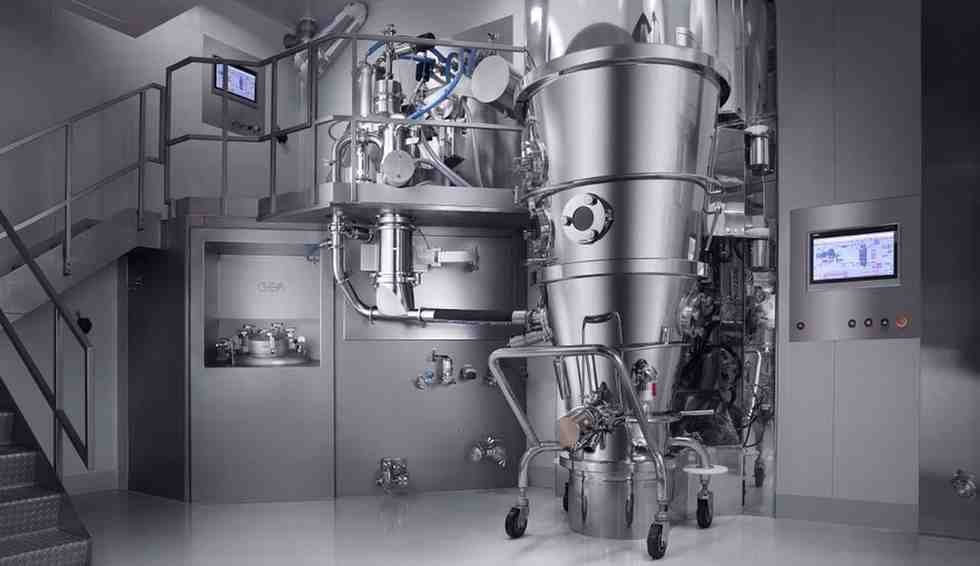New Delhi: Laborate Pharmaceuticals, a prominent name in India’s pharmaceutical sector, has achieved a major milestone with its manufacturing facility in Paonta Sahib, Himachal Pradesh, receiving the prestigious European Union Good Manufacturing Practice (EU-GMP) certification.
This global quality benchmark paves the way for the company to significantly strengthen its presence across the European Union and other highly regulated markets.
The EU-GMP certification is regarded as one of the most stringent standards in the pharmaceutical industry, ensuring that medicines are consistently produced and controlled according to internationally recognized quality requirements.
By obtaining this accreditation, Laborate Pharmaceuticals has not only validated its production excellence but also unlocked new opportunities in international trade and collaborations.
Global Export Opportunities Open Up
With this certification, Laborate Pharmaceuticals can now legally export its medicines, particularly tablets and capsules, to the European Union. This move is expected to bolster the company’s footprint in global markets and further enhance its credibility among international partners.
Beyond the EU, the certification also strengthens the company’s eligibility to supply to several other regulated regions that follow similar quality benchmarks.
In addition, Laborate is actively engaged in discussions with leading pharmaceutical companies in Europe and the United Kingdom.
These talks are aimed at potential co-development agreements and supply partnerships, which would not only boost the company’s revenues but also broaden its product portfolio for patients worldwide.
Company Director Parag Bhatia emphasized the importance of this achievement, stating, “Obtaining EU-GMP certification is a significant leap for us. It reflects our commitment to quality, patient safety, and global reliability. With this recognition, we aim to become a trusted partner for healthcare companies across Europe and beyond.”
Expansion and Earnings Outlook
Industry experts suggest that this development could substantially increase the company’s international revenues. According to estimates, Laborate Pharmaceuticals stands to gain up to $100 million in additional earnings over the next five years as a direct result of new export opportunities and strategic collaborations.
The Paonta Sahib plant, spread across 1.57 lakh square feet with 53,000 square feet dedicated exclusively to production, is equipped with modern technology and stringent process control systems.
Prior to certification, it underwent a rigorous inspection by European authorities, covering every aspect of operations — from manufacturing procedures to documentation and quality assurance systems.
The approval is therefore seen as a strong endorsement of the company’s global manufacturing capabilities.
Future Plans and Regulatory Filings
Laborate Pharmaceuticals is not limiting its ambitions to Europe alone. Over the next five months, the company intends to file regulatory applications for around 20 new drugs in markets such as the UK, Australia, and South Africa.
Additionally, efforts are underway to secure certifications from other regulatory bodies, including those in the Gulf Cooperation Council (GCC) and the Eurasian Economic Union (EAEU).
These initiatives are expected to accelerate the company’s global expansion strategy and diversify its international market presence.
“We are building long-term, sustainable partnerships with global players,” added Bhatia. “Our focus is on providing reliable, scalable, and affordable manufacturing solutions that align with the needs of international healthcare systems.”
Strengthening India’s Pharmaceutical Presence Globally
India has long been recognized as a global hub for generic medicines, supplying affordable and high-quality drugs to over 200 countries. Laborate Pharmaceuticals’ achievement further strengthens this narrative, underlining the ability of Indian companies to compete at the highest international levels.
By achieving EU-GMP status, the company has joined an elite group of Indian pharmaceutical firms with access to some of the world’s most competitive markets.
Industry observers note that EU-GMP certification also brings indirect benefits. It builds trust with healthcare providers, regulators, and patients in both domestic and international markets.
Furthermore, it opens doors to collaborations in drug development, clinical research, and long-term supply contracts — opportunities that go beyond the immediate commercial gains from exports.
Company Profile
Founded in 1985, Laborate Pharmaceuticals has grown into one of India’s leading pharmaceutical companies, with a presence in more than 55 countries.
The company manufactures a wide range of medicines across therapeutic categories including cardiovascular health (CVS), diabetes, central nervous system (CNS) disorders, pain management, and general medicine.
Its manufacturing facilities are already certified by the World Health Organization for Good Manufacturing Practices (WHO-GMP), and the latest EU-GMP certification further strengthens its global standing.
Over the decades, Laborate has built a reputation for quality-driven manufacturing, competitive pricing, and a commitment to innovation.
The company’s focus on scaling its international operations while maintaining stringent quality controls highlights its long-term vision of becoming a key global healthcare partner.
A Defining Moment
The EU-GMP certification of the Paonta Sahib facility is more than just a regulatory approval; it represents a defining moment in Laborate Pharmaceuticals’ growth story.
With enhanced credibility, expanded export potential, and promising new collaborations on the horizon, the company is positioned to significantly increase its role in global healthcare supply chains.
As global demand for affordable and reliable medicines continues to rise, Laborate Pharmaceuticals’ achievement reinforces India’s image as a trusted provider of healthcare solutions.
For the company itself, this marks the beginning of a new chapter — one where quality, expansion, and international collaboration converge to shape its journey toward becoming a stronger global player.








